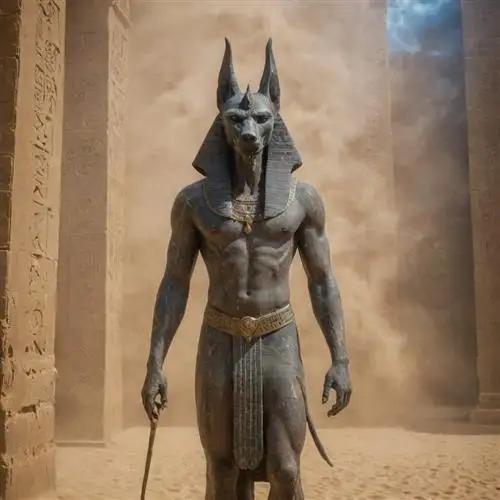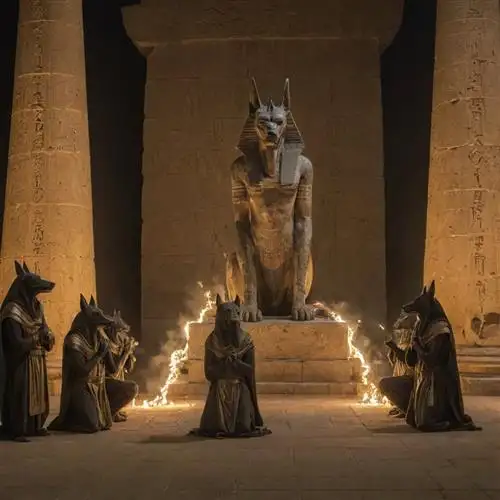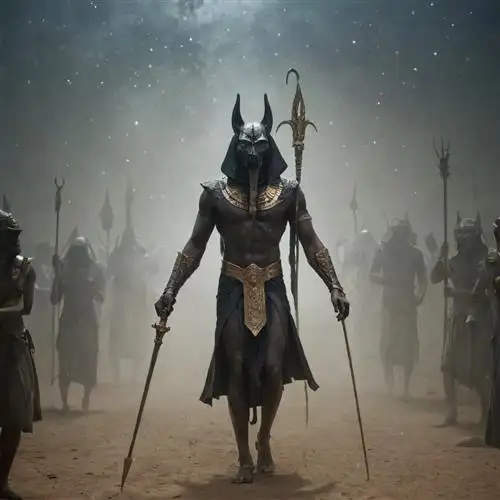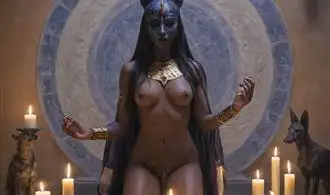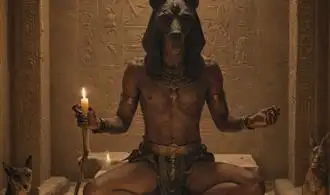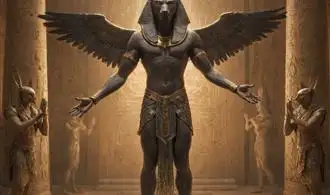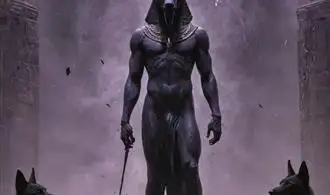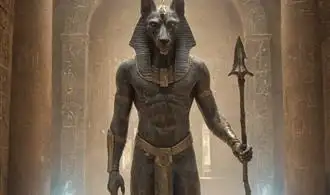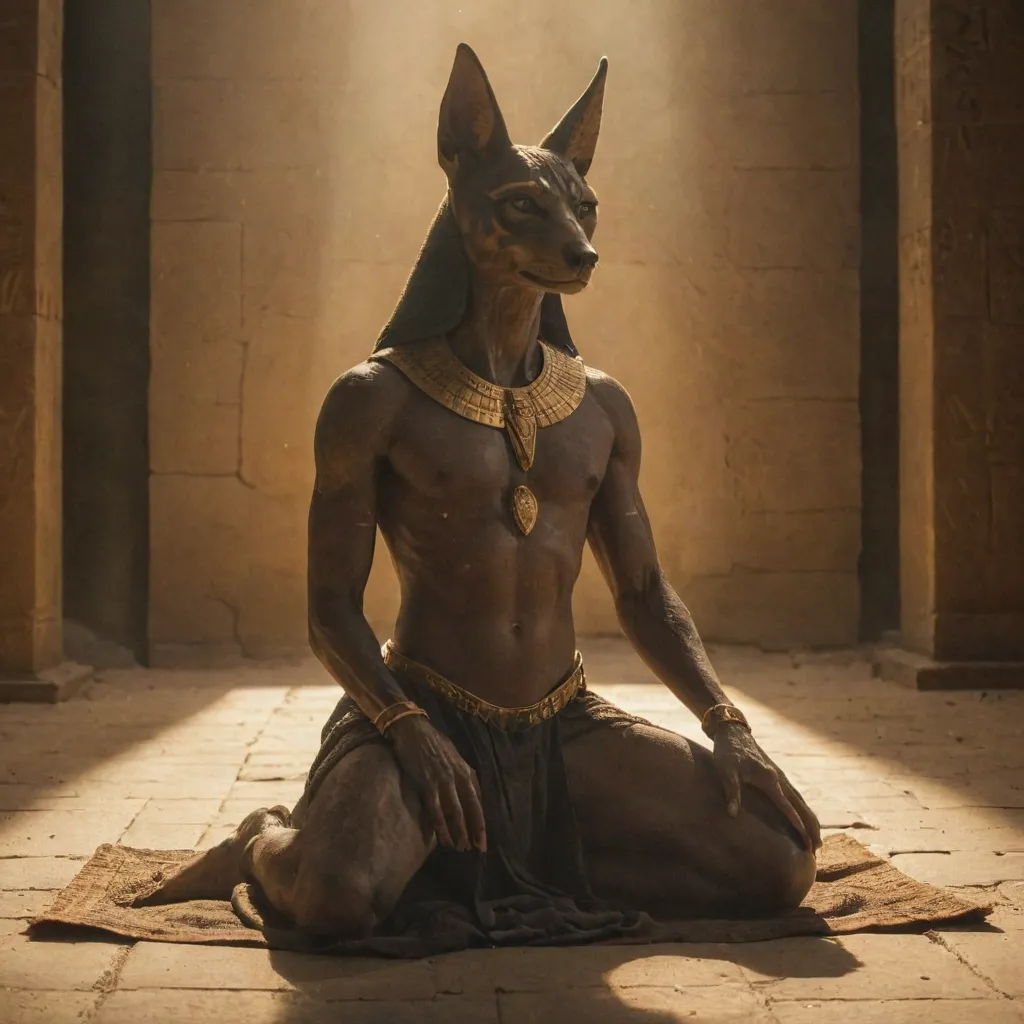
The Enigmatic God Anubis
Anubis, the jackal-headed deity, stands as one of the most captivating figures in Ancient Egyptian mythology. This enigmatic god, often associated with the afterlife, holds a profound significance that continues to intrigue scholars and spiritual seekers alike. Delving into the depths of Anubis's symbolism and role within the Egyptian pantheon can unveil a wealth of insights for those seeking to connect with this powerful entity.
At the core of Anubis's significance lies his association with the mummification process and the journey of the soul into the afterlife. As the god who presided over the embalming of the dead, Anubis played a crucial role in ensuring the deceased's successful transition to the next realm. This connection to the sacred rites of death and rebirth imbues Anubis with a profound mysticism, making him a gateway to exploring the mysteries of the afterlife.
Anubis's iconography, with his distinctive jackal-like head, further enhances his enigmatic nature. The jackal, a creature that thrives in the liminal spaces between the living and the dead, symbolizes Anubis's role as a mediator between the physical and the spiritual realms. This dual nature, straddling the boundaries of life and death, grants Anubis a unique perspective and the ability to guide souls through the transformative process of passing from one state of being to another.
Beyond his funerary associations, Anubis is also revered as a guardian and protector. His watchful gaze is believed to safeguard the deceased during their journey through the underworld, ensuring their safe passage to the realm of the afterlife. This protective aspect of Anubis has resonated with many spiritual seekers, who invoke his aid in navigating the challenges and transitions of their own lives.
For those interested in channeling the energy and wisdom of Anubis, the process can be both profound and transformative. Through meditation, ritual, and a deep reverence for this enigmatic deity, individuals can seek to forge a connection with Anubis and tap into the insights and guidance he offers. This connection can provide a deeper understanding of the mysteries of death, rebirth, and the infinite cycles of existence.
Unlocking the Secrets of Anubis Worship
Anubis, the enigmatic jackal-headed god of ancient Egyptian mythology, has long captivated the imagination of spiritual seekers and scholars alike. While his outward form may seem intimidating, the deeper insights into the worship of Anubis can unlock profound truths about the nature of the afterlife, the power of transformation, and the duality of the human experience. In this article, we'll delve into the core mysteries of Anubis worship, empowering you to channel this ancient deity and forge a transformative connection with the realm beyond the veil.
At the heart of Anubis worship lies the recognition of the god's role as the guardian of the dead and the psychopomp, or guide, who facilitates the passage of the soul from the physical world to the afterlife. By understanding and honoring this sacred function, we can tap into the transformative energies that Anubis embodies. One of the key aspects of Anubis worship is the concept of mummification, which symbolizes the process of spiritual and psychological transformation. Through rituals and meditations focused on the mummification process, we can explore the themes of death, rebirth, and the integration of the shadow self.
Another integral aspect of Anubis worship is the exploration of the duality within the human experience. Anubis, with his jackal-like features, represents the intersection of the civilized and the wild, the rational and the instinctual. By embracing this duality, we can cultivate a deeper understanding of our own multifaceted nature and learn to navigate the complexities of the human condition. Experts Spill the Secrets of Anubis can provide further insights into the nuances of this profound duality.
Furthermore, Anubis is revered as the guardian of the afterlife, responsible for weighing the hearts of the deceased against the feather of Ma'at, the goddess of truth and justice. By invoking Anubis, we can tap into the wisdom and guidance necessary to navigate the challenges of the afterlife and ensure the integrity of our own souls. Through rituals, meditations, and contemplation, we can cultivate a deep respect for the mysteries of death and the transformative power that lies within.
Anubis and the Afterlife
Anubis, the ancient Egyptian god of the dead, played a crucial role in the intricate beliefs surrounding the afterlife. As the patron of the mummification process and the guide of souls to the underworld, Anubis held a pivotal position in the journey of the deceased.
The ancient Egyptians believed that upon death, the soul, or "ka," would embark on a perilous journey to the afterlife. Anubis, with his jackal-like head, was responsible for ushering the deceased through this transition, ensuring the soul's safe passage to the realm of the dead. He would carefully weigh the heart of the deceased against the feather of truth, a process known as the "Weighing of the Heart." This ritual determined whether the individual had lived a virtuous life, worthy of eternal rest in the afterworld.
Anubis's role extended beyond the initial judgment of the soul. He also protected the mummy, ensuring the preservation of the physical body, which was believed to be the vessel for the ka. The ancient Egyptians went to great lengths to mummify their deceased, with Anubis overseeing each step of the process, from the removal of the internal organs to the final wrapping of the body.
In the afterlife, Anubis continued to guide the deceased, leading them through the treacherous underworld and ensuring their safe arrival at the Hall of Judgment. Here, the dead would face the ultimate test, as their hearts were weighed against the feather of truth. If the heart was found to be pure, the individual was granted access to the eternal bliss of the afterworld. If the heart was deemed heavy with sin, the soul would be condemned to a fate of damnation.
Channeling the Power of Anubis
Anubis, the ancient Egyptian god of the dead, is a powerful and enigmatic figure that has captivated the minds of spiritual seekers for centuries. As the guardian of the afterlife, Anubis is believed to possess a profound understanding of the mysteries of death and the transitional journey of the soul. For those who wish to tap into the transformative energy of this deity, the process of channeling Anubis can be a profound and life-changing experience.
At the heart of channeling Anubis lies the principles of deep introspection and inner transformation. To effectively channel this powerful entity, one must be willing to confront the shadows of the self, to embrace the duality of life and death, and to surrender to the wisdom that Anubis has to offer. This process often involves a journey of self-discovery, where the individual must delve into the depths of their own psyche, facing their fears, insecurities, and the innermost aspects of their being.
The act of channeling Anubis is not a simple or straightforward process. It requires a deep level of spiritual discipline, meditation, and a willingness to let go of the ego and the attachment to the physical world. Through a series of rituals, visualizations, and energetic practices, the individual can align themselves with the essence of Anubis, allowing the god's wisdom and guidance to flow through them.
One of the key aspects of channeling Anubis is the focus on the duality of life and death. Anubis is not only the guardian of the dead but also the keeper of the balance between the physical and the spiritual realms. By embracing this duality, the individual can gain a deeper understanding of the cyclical nature of existence, the impermanence of all things, and the profound interconnectedness of all life.
As the individual delves deeper into the process of channeling Anubis, they may experience a range of profound transformations, both on a personal and a spiritual level. These transformations may manifest as increased intuition, heightened psychic abilities, a deeper connection to the ancestral and spiritual realms, and a greater sense of purpose and meaning in their life.
It is important to note that the process of channeling Anubis requires a deep level of respect, reverence, and responsibility. The individual must approach this practice with a humble and open heart, recognizing the immense power and wisdom of the deity they are engaging with. Proper preparation, protection, and integration are crucial to ensure a safe and transformative experience.

